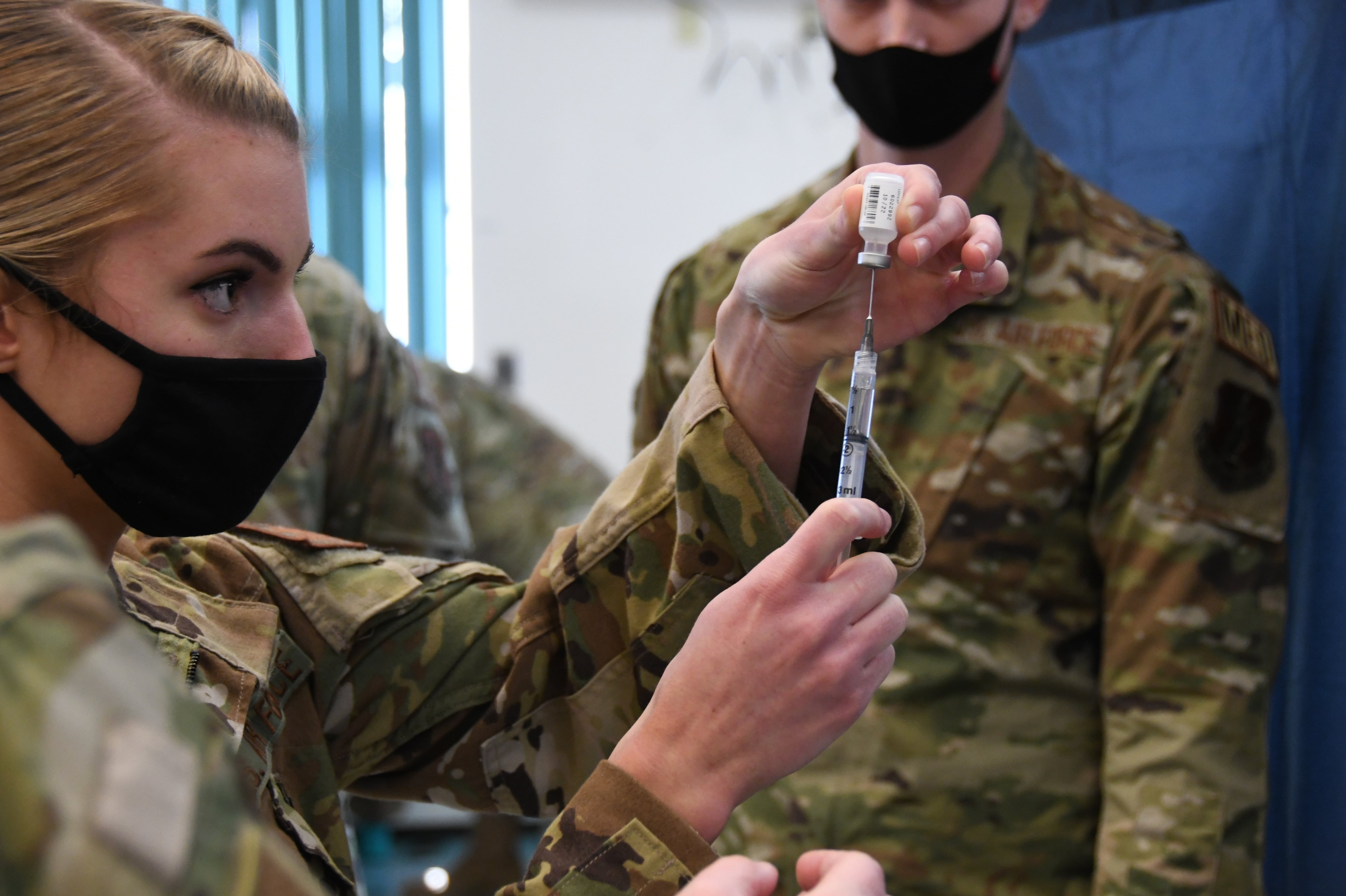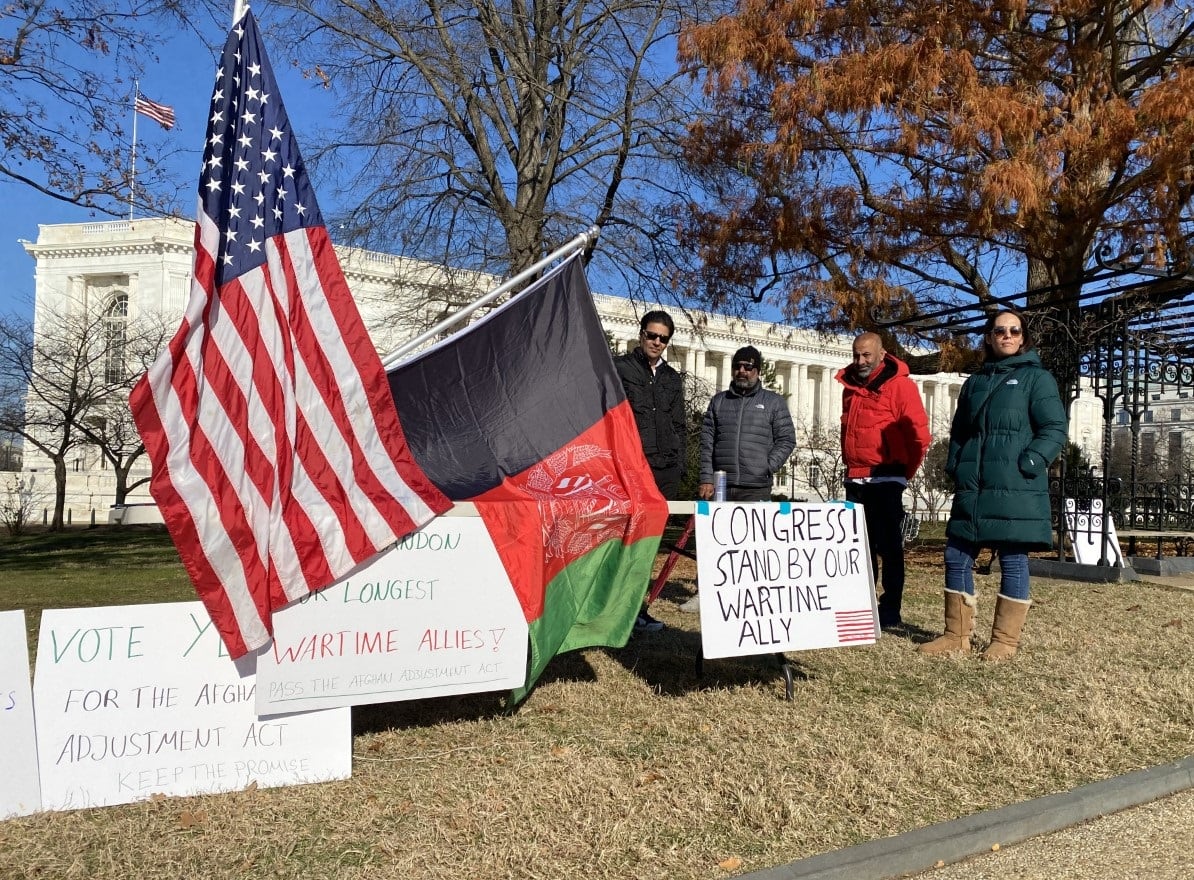President Joe Biden signed the annual defense authorization bill into law Friday despite administration concerns over its repeal of the military’s coronavirus vaccine mandate, saying the legislation includes “critical authorities to support our country’s national defense.”
The measure includes $817 billion in spending for the Department of Defense in fiscal 2023 and a 4.6% pay raise for troops starting next month. The legislation was passed by both the House and Senate with broad bipartisan margins, and White House officials had signaled the president would approve the measure when it arrived at his desk.
But administration officials have raised objections in recent weeks over the inclusion of the COVID-19 vaccine mandate repeal, put in place by Defense Department officials in late 2021.
RELATED

Since then, more than 8,000 troops have been dismissed for refusing the vaccine, seen by military leaders as just the latest in a series of inoculations required by the services to protect troops’ health and ensure readiness.
But conservative groups have called the requirement an unfair infringement of troops’ rights, and pushed for the repeal as part of the defense budget policy bill. Democratic lawmakers largely went along with the plan, offering only minor objections or their own criticisms of the vaccine mandate.
Biden did not mention the vaccine issue in his signing statement for the authorization bill on Friday.
Earlier in the week, White House press secretary Karine Jean-Pierre blasted Republicans for pushing for its inclusion in the critical defense legislation, but said the issue is largely moot.
“We saw that Republicans in Congress decided that they’d rather fight against the health and well-being of the troops than protecting them,” she said.
“But with more than 98 percent of our active-duty troops vaccinated, that means that the overwhelming bulk of our force is in compliance with the requirement and remains protected against COVID.”
In his bill signing statement, Biden did raise objections to several portions of the bill, saying they would violate executive branch powers and “could reveal critical intelligence sources or military operational plans.” Such objections are typical each year.
The $817 billion in Defense Department spending is $45 billion above the White House budget request submitted last spring. Lawmakers said the extra money is needed to offset rising inflation costs.
The 4.6% military pay raise is the largest for troops in 20 years.
For junior enlisted troops, the 4.6% hike would mean about $1,300 more next year in take-home pay. For senior enlisted and junior officers, the hike equals about $2,500 more. For an O-4 with 12 years’ service, it’s more than $4,500 in extra pay.
RELATED

The bill also includes $32.6 billion to increase the U.S. naval fleet, including funds for 11 battle force ships. For the Army, it authorizes funding increases for the CH-47 heavy-lift helicopter, the UH-60 Blackhawk medium-lift helicopter and the MQ-1 Gray Eagle drone.
And the bill allows the Air Force to begin retiring the A-10 Warthog after previous congressional opposition. The bill also authorizes funding for five more F-35A aircraft as well as F-22 modernization.
The authorization bill has now been passed by Congress and signed into law for more than six decades, a record of reliability that comes despite increasing political tensions in Congress each year.
The policy bill outlines spending plans and goals for fiscal 2023 (which runs until Sept. 30, 2023) but does not actually provide funds for those priorities. That money will be awarded as part of the $1.7 trillion federal omnibus appropriations bill expected to be finalized by the House Friday afternoon.
Leo covers Congress, Veterans Affairs and the White House for Military Times. He has covered Washington, D.C. since 2004, focusing on military personnel and veterans policies. His work has earned numerous honors, including a 2009 Polk award, a 2010 National Headliner Award, the IAVA Leadership in Journalism award and the VFW News Media award.





